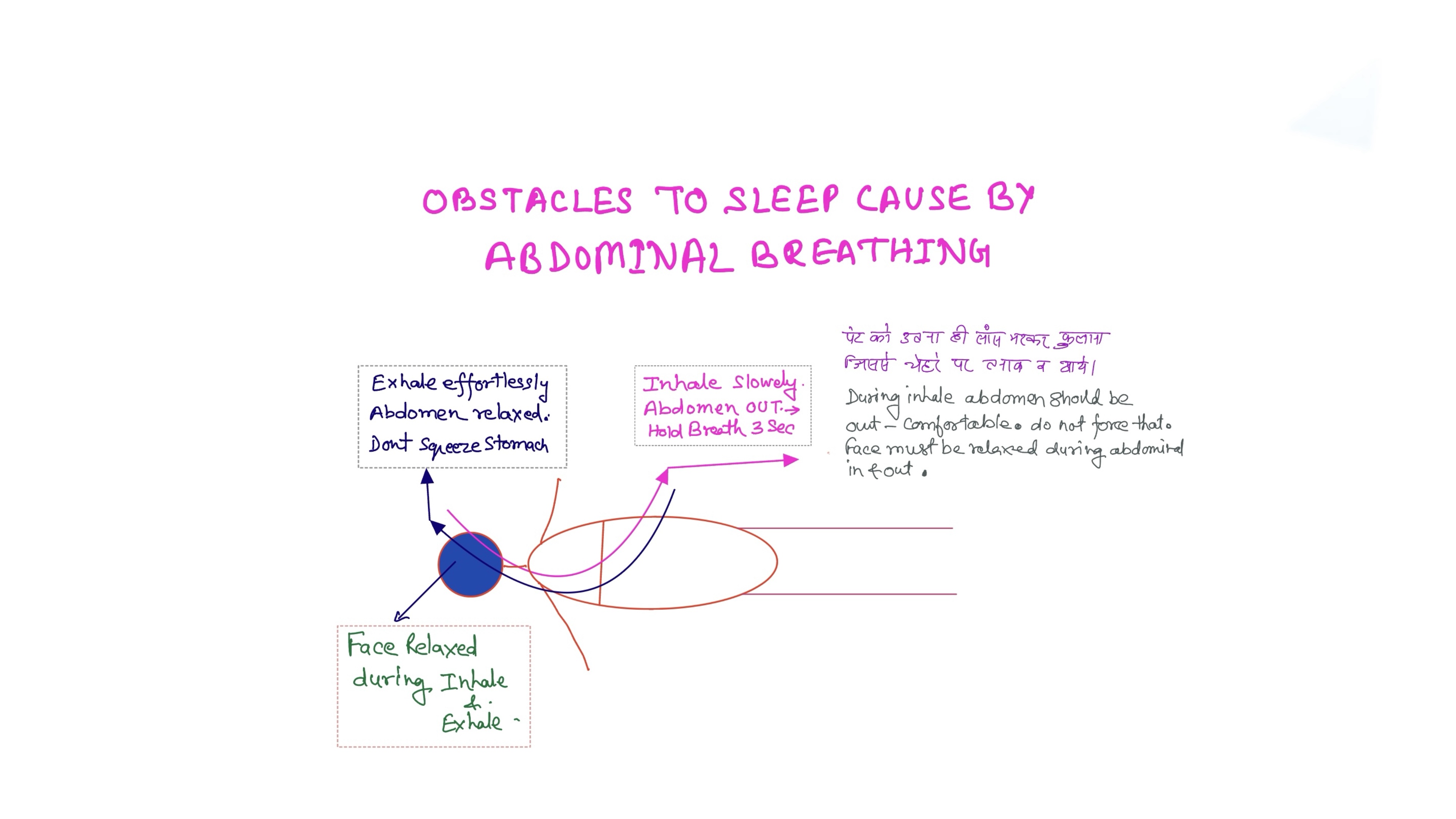
Obstruction in Sleeping
2 years ago By Yogi AnoopObstruction to Sleep Due to Abdominal Breathing
Sometimes, there can be a problem with performing abdominal breathing before sleeping. This problem especially affects those who perform intense abdominal breathing. Intense here refers to being hyper. In other words, by becoming hyper and practicing pranayama, it can hinder sleep. Due to the intense mind, the pranayama practices activate the pingala nadi, making it intense and active. As a result, the right nostril becomes excessively stimulated, and the sense organs become active as well. In this state, the mind becomes active, engaging in intellectual activities. Please note that engaging in excessive intellectual activities increases the acidity level. As a result, problems such as heaviness in the head and reflux worsen.
Therefore, I have observed in some people that practicing pranayama exercises involving the abdomen before sleep disrupts their sleep.
Attention is being given to the following reasons here:
Physical discomfort: While practicing pranayama, there should be no physical discomfort. Efforts should be made to relax the muscles of the body at that time. If the practitioner is unable to relax the muscles, they should practice an asana that loosens the muscles before practicing pranayama. Only then will the practice of pranayama be meaningful.
Relaxation of the senses: It is important to note that during pranayama, the practitioner's senses, especially the eyes, should be relaxed. If the eye muscles are not relaxed, it means that the effect of pranayama is being felt. It is only during this state that sleep can be achieved through pranayama.
Gastric stimulation: Abdominal breathing exercises are usually used to calm the mind and empty it. This is because in general, excessive gas in the abdomen is the cause of sleep problems in most people. Due to the discomfort in the abdomen in approximately seventy percent of the population, sleep disturbances occur. Therefore, I suggest that abdominal breathing exercises be performed before sleep to alleviate the discomfort in the abdomen and achieve deep sleep.
Most children also experience such discomfort. That is why sleeping on their stomachs is often seen as a habit in children. It helps alleviate the gastric tension in their abdomen.
Mental stimulation: After a certain age, mental stress is observed more in individuals. This affects all the nerves in the body. Due to mental stress, the pingala nadi becomes more active. That is why I always recommend practicing pranayama before sleep.
Every individual, whether they are able to sleep or not, should practice their respective pranayama exercises before sleep. Otherwise, if deep sleep is not achieved, they may suffer from various mental illnesses in the future, for which modern science may not have a solution.
Time limit for pranayama: Some people have limited time before sleep, and they find it difficult to engage in long abdominal breathing exercises. Generally, I recommend practicing abdominal breathing for eleven minutes. However, excessive practice and effort for a few minutes can cause tension in the mind, which can disrupt sleep. Please note that using mental relaxation techniques during pranayama is highly beneficial.
Personal Freedom: It is not possible to fully know a person's nature by others. Therefore, after a certain state, the Guru or teacher grants the disciple or patient the freedom to do what their inner self tells them. If the inner self does not provide a proper experience of inner relaxation, then one should stop and choose another cautious system or surrender system. Alternatively, they should discuss and decide with their Guru.
In summary, although abdominal and diaphragmatic breathing is considered the best before sleeping, which helps control gas and wind-related problems, this is my experience.
Recent Blog
Copyright - by Yogi Anoop Academy
